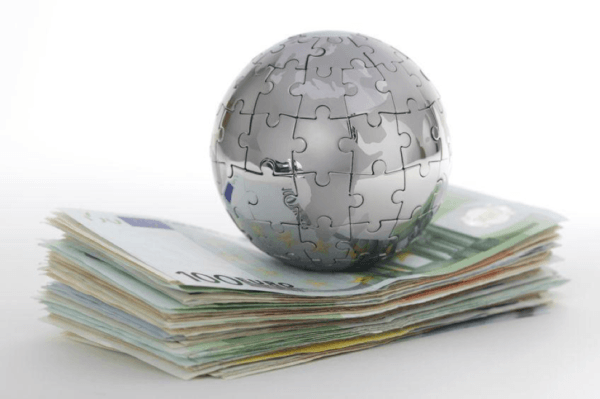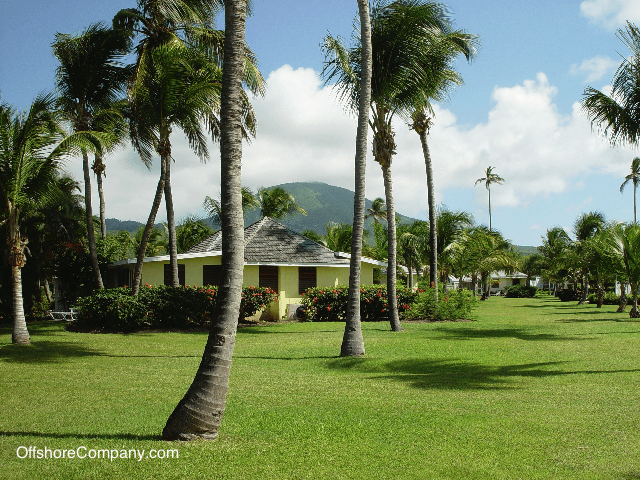
When you’re seeking advice on a big decision with a lasting impact, someone might tell you not to put all your eggs in one basket. The same is true for those considering overseas accounts. It’s an adage that has often been repeated, but there is good advice behind it. Diversifying your options means that several outcomes can produce a favorable result, giving you the highest chance for success.
Putting your eggs in several baskets is advice that is just as good when it comes to banking. Investing in a bank in your home country and in banks overseas gives you options that can provide you or your company with security and peace of mind. But how do you know which baskets to choose? What are the benefits of putting eggs in a basket that isn’t in your home country? Through examining some of the offshore banking options out there, this article will help you answer those questions.

Overseas Banking: Terminology
When looking for an overseas banking definition, it helps to know that there are a lot of other terms associated with it. “Offshore banking” is synonymous, and both terms refer to using a bank outside of your country of residence. Although these terms seem to reference only distance islands and coastal countries, landlocked and neighboring countries can be sources of overseas banking as well. The opposite of these terms is “onshore banking”, which is using a bank in your own country.
Another term you might encounter when dealing with overseas banking is “tax haven”. A tax haven country refers to an offshore bank that provides a foreign individual or company with a low tax liability. U.S. people are taxed on worldwide income but citizens of some other countries are not. A tax haven is usually one of the biggest draws to creating overseas accounts, since low taxes mean that you keep more of your own money. Many tax havens are known for having economically and politically stable environments.
A third term often used in overseas banking is parallel banking. Parallel banks are a series of banks with the same beneficial owner that are spread across different jurisdictions, or markets. According to the Bank for International Settlements, parallel banking relationships often exist unknown to the supervisors of the specific banks. Parallel banks often interlink businesses and share management. The owner(s) of one of these series of banks may be a single individual, a group of shareholders, or a holding company, and anything in between.

Offshore Investing
It’s important to find the right market for your overseas account so that you know your money is secure. Getting the best security for your international bank account means that you want to minimize your political and economic risk. Different markets have different risk factors, and knowing what these are can be the first step in choosing where to open your new account.
According to Investopedia, developed markets often are less risky to invest in, since they are larger and more established. Different sources have some different ways of deciding what is a developed market, but one good source is the Financial Times and London Stock Exchange (FTSE). The FTSE specializes in index calculation, and the FTSE 100 index provides a good indicator of a company’s or country’s prosperity. Some of the countries categorized as such, as of a report in September of 2008, include Austria, Canada, France, Germany, Israel, Luxembourg, Portugal, Sweden, and the United States.
Markets that aren’t developed are categorized as emerging, and these vary in size and stability. Although again these vary by the source, some emerging markets include Vietnam, India, Brazil, Mexico, and Turkey. Since these markets do not have a level of market efficiency and are still progressing toward becoming advance, accounts in these countries can prove to be riskier investments.

Choosing Your Bank
When it comes to overseas banks, there are a lot of options. Determining which one is the right one for you will depend on what you need from your offshore account. The bottom line is to talk to an expert with experience. There are numbers and forms on this page to do just that. After all, it is your money we are talking about here.
Different banks will have different requirements for individuals and companies, with varying minimum deposits, fees, and documentation requirements. So, as mentioned, good first step in choosing the right bank is to do some research and talk to a financial professional.
A good place to start your research is with Global Finance’s yearly list of the safest banks in the world. According to the most recent of the best international bank in the world is the KfW. This government-owned development bank is in Frankfurt, Germany and has an exemption to paying corporate taxes due to its status as a public agency. Germany is known for having safe banks. For example, several other German banks that make the top of Global Finance’s list, with banks holding other positions at numbers 3, 4, and 7.
Switzerland, the Netherlands, France, Canada, and Luxembourg round out the rest of the Global Finance’s top ten safest banks, but there are several other countries that can provide some stable international banking. The small Asian nation of Singapore is high on the list, housing the three safe banks of DBS, OCBC, and UOB.

Opening an Offshore Account
The amount of documentation required for an overseas bank account will vary depending on the laws of a bank or country. Generally, you’ll need a passport or international ID to get started. Some banks will also require the account holder to own land in the country, fill out additional paperwork, have a high initial deposit, or maintain specific minimum balances. We can help you to figure out which options and requirements will best meet your case.
The convenience of accessing your account is something to consider when choosing your bank, and making things easy can start right at the beginning. Many banks have online application processes that will let you open an international bank account online. Some of these banks include Barclays and HSBC. (HSBC France is number 48 on Global Finance’s list.) Once your account is open, many of these banks have online banking options that let you handle your funds from anywhere in the world.
As far as what is the easiest country to open a bank account, Nomad Capitalist suggests Georgia. Some of the banks in Georgia have extremely low initial deposits – as low as $9 with the exchange rate! Although banks in Georgia don’t allow remote opening, the setup process for an account is usually simple and quick. Once the account is open, opening additional accounts is even easier.

Best Offshore Banks
The World Traveler
If you’re a traveler, the best bank for traveling internationally may be different than if you’re generally bound to your home country. One thing to consider when choosing a good bank as a traveler is what your ATM fees will be. To find banks with low ATM fees, a good source to consult is the Global ATM Alliance. This alliance is a group of international banks that lets account holders avoid huge international withdrawal fees at other banks within the alliance. Some of the banks within the alliance include Bank of America, BNL, Scotiabank, Westpac, and Deutsche Bank.
Forbes, and a variety of other sources, cite Charles Schwab as one of the best banks for the traveler. Their high yield investor checking account includes free ATM withdrawals. There are also branches all over the world, allowing travelers easier access, no matter where they are.

Best of: The Nomad or Expat
One of the best international banks for expats is the HSBC. This international bank helps with relocation, allowing account holders to open bank accounts before they arrive in a country and offering mobile options afterward to help with account maintenance. So, for an expatriate, one who lives outside of his or her native country, this may be a good choice.
If you’re more nomadic or generally like the freedom of being able to pick up and move, Nomad Gate cites several options. One of the best nomadic banks in Europe is N26, based out of Germany. Some of its features include an online opening process, no annual account fees, and a convenient app. A good North American bank is again Charles Schwab, based out of the US. This bank is best loved for having almost no fees, and they even offer reimbursement on fees imposed by ATM owners. Citibank, out of Australia, is a good choice for Oceanic nomads. It includes free international transfers, no ATM fees, and even a free bottle of wine in some restaurants.

Offshore Banking: Long Term Effects
Whether you want to strengthen your own financial portfolio or secure the financial future of your company, putting your eggs in a few different baskets can have a lasting effect. Having international assets can create lower overall risk and deviation across your financial portfolio. Investopedia cites some of the benefits for a U.S.-based portfolio, for example. Just adding 10% in non-U.S. assets to such a portfolio can lower the standard deviation across the portfolio by 0.7-1.1% over the course of five years.
The benefits of spreading out those eggs don’t end with you, however. Just as overseas banking can benefit an individual or company portfolio, there is also evidence to suggest that it benefits the home country as well. Offshore investors bring capital to a market’s banks and financial institutions, and those assets can help create a strong financial foundation for that country’s economy.

